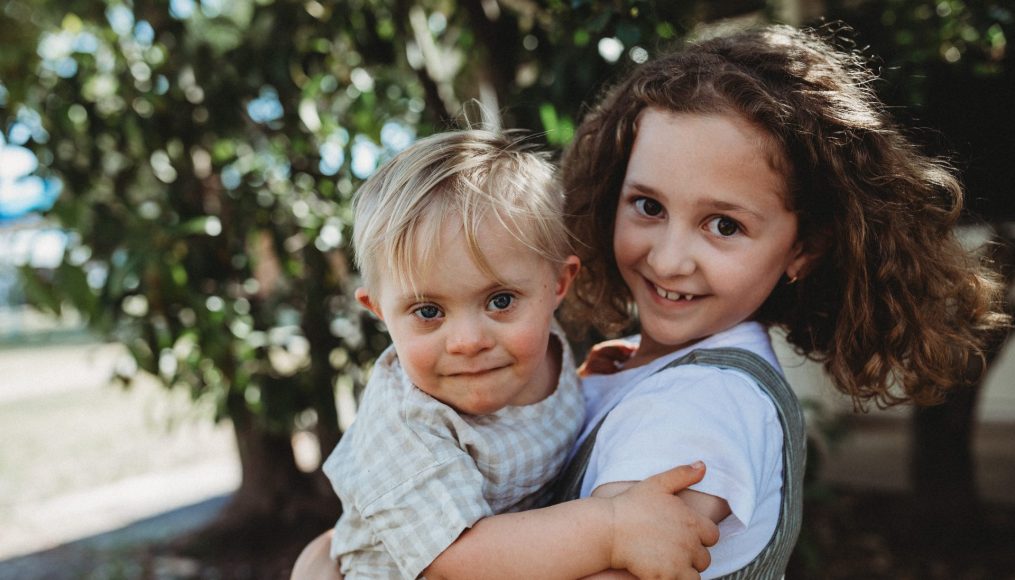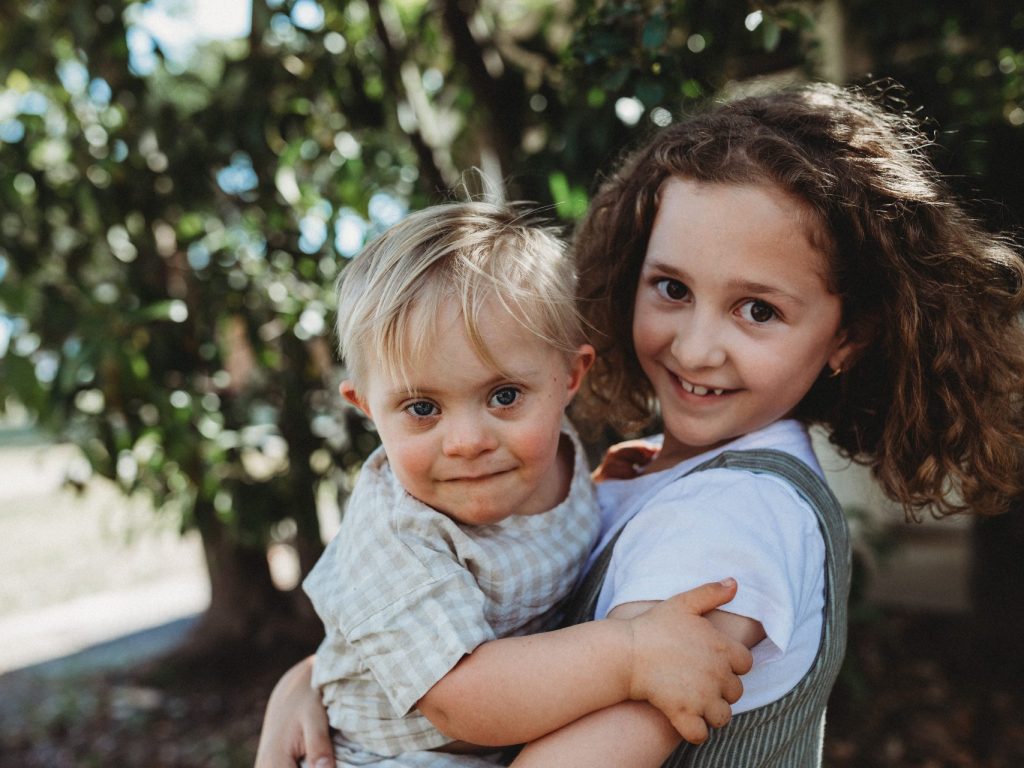
By Kate Strohm, Siblings Australia
Most siblings of a person with disability care deeply about their brother or sister. However, as children, they might feel confusion about things that happen around them. If we support them early to manage the challenges they might face, the relationship is likely to be stronger and mutually supportive, over their lifetimes.
So, what might those challenges be?
First up, children may not understand why a child with Down syndrome behaves differently or seems to gain more attention from those around them. It can help to talk about the strengths and difficulties for all the family. For example, Mum does this well but not that. Or Dad is great at a particular skill, but it is best to not ask him to do something else he is not so good at. And Sam who has Down syndrome can do certain things well but needs more help elsewhere. Books can also help children to understand the disability and its impacts. For example, We’ll Paint the Octopus Red, by Stephanie Stuve-Bodeen, is a delightful book for children 3 to 8 years old.
Siblings of children with disability can also have a mix of feelings like sadness, guilt, resentment and even envy, but not have an outlet for those feelings.
For example, they might feel resentful if family activities are disrupted or if they have to do things which are not expected from the child with disability. But then they can feel guilty about those feelings or the fact that they are able to do things their brother or sister cannot. They can feel envious of the attention a child with disability might receive and feel that they are not as important. They need to know that the feelings are ok. Not all behaviour is ok, however, and they might need help to understand and manage the feelings in constructive ways. Again, books can help. For example, the series of books about feelings by Brian Moses look at a range of situations in a light-hearted but ultimately reassuring way.
Some siblings can become overly responsible, not only for their brother or sister, but also for parents. They want to make things right and be the ‘good child’. It is important to let them know that you appreciate any help they give but that there are limits to their responsibility by saying things like, ‘Thank you for that, but this is Mummy’s job… you can go and play now’.
We wish other people would not stare or make upsetting comments about children with disability but, sadly, they do, and siblings can be helped to respond in ways that leave them feeling more comfortable when others comment about them or their brother/sister with disability. It can be helpful if they can accept that those who respond in such ways are not bad people, they just lack understanding.
Siblings sometimes need help to become independent and develop their own identity away from the family. They need their own interests and friends, while still being connected to their family. It can help if teachers know that the child is a sibling to a child with Down syndrome and may need some extra support at times.
Ultimately, siblings do better when they feel that others understand that it can be difficult for them too sometimes, they are able to ask for help from parents or others in their lives, and they can learn skills to manage any stresses. They also benefit from having time with other siblings of children with disability, through recreational or more therapeutic groups. Siblings Australia is reviewing its Sibworks program for 8 to 12 year old siblings and will roll out training for facilitators by the middle of next year.
About the author
Kate Strohm founded Siblings Australia in 1999. She is the author of the book, Siblings: Brothers and Sisters of Children with Disability (revised edition 2014, Wakefield Press). The organisation provides a range of resources and services for parents, adult siblings, and professionals via its website http://siblingsaustralia.org.au/, webinars, one on one sessions for parents/adult siblings, and online opportunities for teen/adult siblings to connect. Its Facebook page keeps up to date with any activities.
This article is available in the following formats to download:


0 Comments